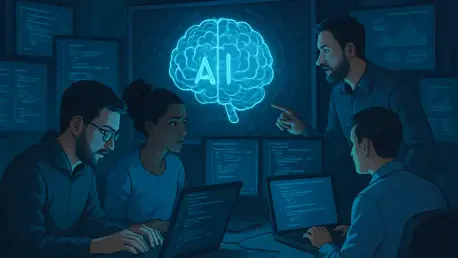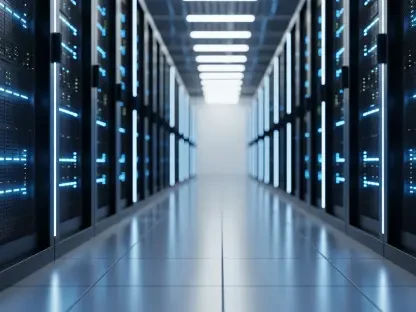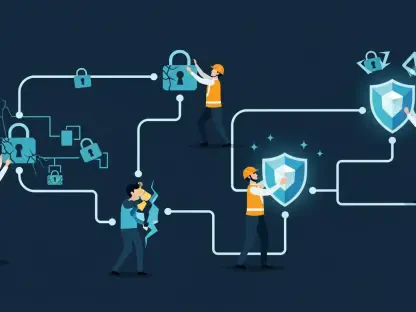In today’s rapidly evolving technological landscape, artificial intelligence (AI) stands as a transformative force, reshaping industries and sparking intense debate about the future of software engineering. With AI tools automating complex tasks at an unprecedented pace, a lingering concern looms over many: could these advancements render software engineers obsolete? Contrary to such fears, a deeper exploration reveals that AI is not a replacement but a powerful ally, amplifying the capabilities of engineers and redefining their roles. Far from diminishing the need for human talent, AI is opening new avenues for innovation, demanding skills that only software engineers can provide. This dynamic interplay positions engineers as indispensable players in a tech-driven world, navigating challenges and opportunities with unmatched expertise. As automation accelerates, the unique value of human insight becomes clearer, ensuring that software engineers remain central to progress. This article examines the reasons behind their enduring relevance amidst AI’s rise.
Redefining Roles Through Automation
The wave of automation powered by AI is fundamentally altering the software engineering landscape, particularly by taking over repetitive and routine coding tasks often associated with junior and mid-level positions. Industry observations indicate that AI-driven tools are already proficient in generating basic code, handling debugging, and even optimizing simple algorithms, which poses immediate challenges for entry-level developers entering the field. However, this shift should not be viewed solely as a threat but as a catalyst for transformation. Instead of focusing on mundane tasks, engineers are now being pushed toward more strategic roles that involve overseeing AI outputs, ensuring system integrity, and tackling challenges beyond the scope of automated solutions. This redirection highlights a crucial reality: while AI can replicate certain functions, it lacks the nuanced judgment required for overarching design and problem resolution, keeping human expertise firmly in demand.
Moreover, the automation trend is prompting a reevaluation of what constitutes core engineering work in an AI-enhanced environment. As mundane coding becomes the domain of intelligent systems, software engineers are increasingly tasked with defining the parameters within which AI operates, crafting innovative frameworks, and integrating diverse technologies into cohesive solutions. Reports suggest that this evolution is not diminishing the profession but rather elevating it, as engineers focus on high-level architecture and cross-disciplinary collaboration. The ability to adapt to these changing demands underscores the resilience of software engineers, whose role now extends beyond traditional programming to shaping the very tools that drive automation. This adaptability ensures that even as AI handles the basics, human engineers remain essential for guiding technological advancement with vision and precision, cementing their place in a shifting industry.
Unlocking New Horizons with AI Collaboration
Contrary to predictions of job displacement, AI is fostering a surge of fresh opportunities within software engineering, creating roles that blend traditional skills with cutting-edge technology. Industry forecasts point to a notable rise in positions like AI engineering and forward-deployed engineering, where professionals merge coding expertise with AI implementation to solve real-world problems. Companies across sectors are actively seeking talent capable of leveraging AI to streamline operations and enhance productivity, demonstrating that human-AI collaboration is not just advantageous but critical for success. This growing demand for hybrid skill sets positions software engineers at the heart of innovation, as they bridge the gap between automated processes and strategic goals, ensuring that technology serves broader business objectives with efficiency and foresight.
Additionally, the emergence of these new roles reflects a broader trend of economic transformation driven by AI integration, with significant implications for the software engineering community. Data indicates an exponential increase in job postings for engineers who can work alongside AI systems, particularly in industries aiming to modernize through digital solutions. This shift is not merely about replacing old jobs but about creating a landscape where engineers are empowered to pioneer advancements, from developing AI-driven applications to optimizing workflows in manufacturing and finance. The synergy between human ingenuity and machine precision is proving to be a powerful combination, reinforcing the notion that software engineers are not being sidelined but are instead becoming indispensable partners in harnessing AI’s potential. Their ability to navigate this evolving terrain ensures that technology remains a tool for progress rather than a barrier to employment.
Adapting Skills for a Competitive Future
As AI reshapes the technological landscape, software engineers must evolve by acquiring skills that complement and enhance automated systems, ensuring their relevance in a competitive market. Emerging competencies such as prompt engineering, data fluency, and AI integration are becoming vital for professionals aiming to stay ahead. A widely echoed sentiment in tech circles emphasizes that while AI may not replace engineers, those who master AI tools will undoubtedly surpass those who resist change. This perspective highlights the importance of embracing technology not as a rival but as a means to boost productivity and innovation. Continuous learning has become a non-negotiable aspect of an engineering career, with professionals encouraged to upskill through training and practical application to meet the demands of an AI-driven era.
Beyond acquiring technical proficiencies, software engineers are also finding value in developing soft skills that enhance their collaboration with AI and cross-functional teams. The ability to interpret AI-generated outputs, refine algorithms through iterative feedback, and communicate complex ideas to non-technical stakeholders is increasingly critical. Educational platforms and industry forums stress that engineers who cultivate a blend of analytical and interpersonal abilities are better positioned to thrive, as they can navigate both the technical intricacies of AI and the strategic needs of their organizations. This holistic approach to skill development not only safeguards against obsolescence but also empowers engineers to lead initiatives that drive meaningful change. By aligning their expertise with the evolving requirements of the industry, software engineers solidify their role as key contributors to technological progress.
Experience as a Shield Against Automation
The impact of AI on software engineering reveals a stark contrast between junior and senior roles, with automation posing greater risks to entry-level positions while amplifying opportunities for seasoned professionals. Data projections indicate that while repetitive tasks at the lower end of the spectrum are increasingly handled by AI, specialized roles such as machine learning engineers are witnessing substantial growth in demand. This disparity underscores the protective power of experience, as senior engineers bring a depth of knowledge and problem-solving acumen that automated systems cannot replicate. Their ability to oversee complex projects and mentor emerging talent ensures that expertise remains a valued commodity in an industry undergoing rapid transformation.
Furthermore, the rising demand for advanced roles highlights how AI is not diminishing the need for human talent but rather redefining where that talent is most needed. Senior engineers are often tasked with designing the frameworks that AI operates within, ensuring ethical considerations, and addressing unforeseen challenges that arise during implementation. Industry insights suggest that openings for experienced professionals are growing at a pace comparable to entry-level roles, reflecting a market that prizes depth over breadth in technical proficiency. This trend serves as a reminder that while AI can handle routine functions, the nuanced understanding and strategic foresight of veteran engineers are irreplaceable. Their enduring relevance in navigating an AI-dominated landscape affirms the importance of cultivating expertise over time.
Human Ingenuity as the Ultimate Advantage
Even as AI demonstrates remarkable capabilities in generating vast amounts of code and solving structured problems, the essence of human creativity and critical thinking remains unparalleled in the tech domain. Experts consistently note that while automated tools excel at handling mundane and repetitive tasks, they fall short when faced with challenges requiring innovative thinking, strategic planning, and adaptive problem-solving. By offloading tedious work to AI, software engineers gain the freedom to focus on crafting unique solutions and driving forward-thinking initiatives. This liberation from routine allows for a deeper engagement with the creative aspects of technology, ensuring that human insight continues to shape the direction of progress in meaningful ways.
Moreover, the irreplaceable nature of human ingenuity is evident in the way software engineers tackle complex, ambiguous scenarios that defy algorithmic resolution. Whether it’s envisioning novel applications for existing technology or addressing ethical dilemmas in AI deployment, the capacity for original thought and contextual understanding sets engineers apart from even the most advanced systems. Industry perspectives reinforce that AI serves best as a tool to augment human potential, not to supplant it, enabling engineers to push boundaries and explore uncharted territories. This symbiotic relationship between technology and human intellect guarantees that software engineers will remain central to innovation. Their ability to blend creativity with technical prowess ensures a lasting impact on the future of technology, proving that no algorithm can fully replicate the human spark.
Harnessing the Future with Human-AI Synergy
Looking back, the journey of software engineering amidst the rise of AI showcases a remarkable balance between adaptation and innovation. The automation of routine tasks paved the way for engineers to elevate their focus toward strategic and creative endeavors, while new roles emerged to meet the demands of a tech-driven world. Skill evolution became a cornerstone of professional growth, ensuring that engineers who embraced AI tools thrived in a competitive landscape. Meanwhile, the distinct value of experience and human ingenuity stood firm against the tide of automation. Moving forward, the path lies in fostering stronger human-AI collaboration, investing in continuous learning, and prioritizing policies that support skill development across all levels of expertise. By championing these steps, the industry can ensure that software engineers not only retain their relevance but also become architects of a future where technology and humanity advance hand in hand.









